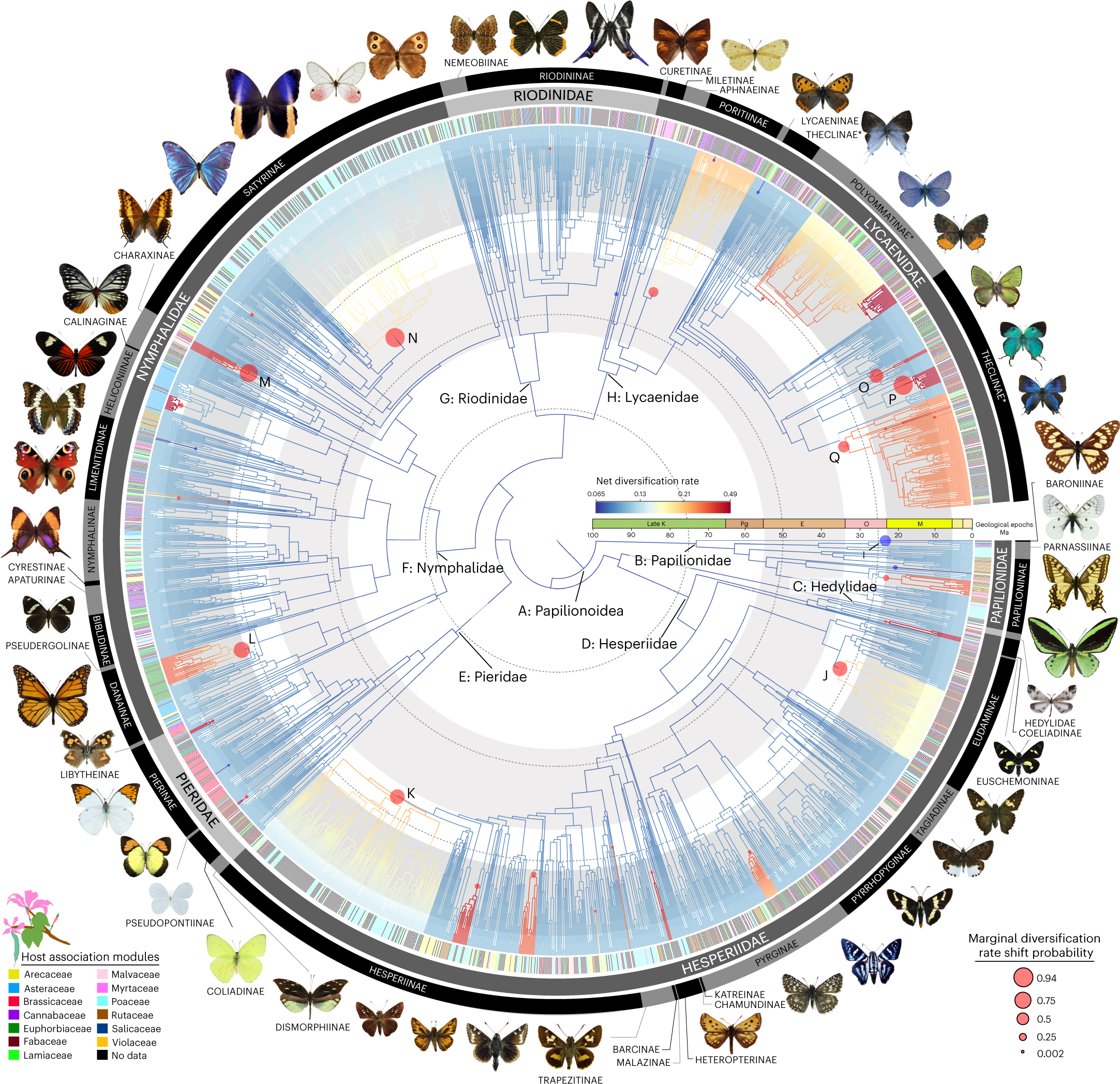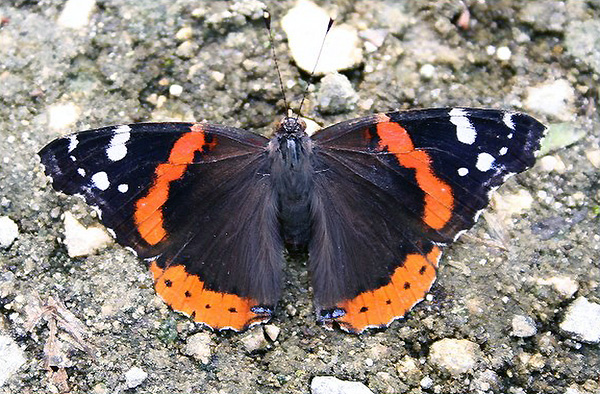Science
Related: About this forumButterflies originated in North America after splitting from moths, new study suggests
I don't normally post in this group despite being a retired scientist... ![]() But saw this article this morning and thought it was pretty cool! If confirmed, that would be a fascinating revelation of these insects being indigenous to the western hemisphere.
But saw this article this morning and thought it was pretty cool! If confirmed, that would be a fascinating revelation of these insects being indigenous to the western hemisphere.
May 16, 2023 5:00 AM ET
Ari Daniel
Akito Kawahara remembers being eight years old when he went on a special tour of the insect collection at the American Museum of Natural History in New York City. He marveled at the vast array of pinned bugs before stopping in front of a large picture of the butterfly family tree. A number of spots on that tree, he saw, were curiously blank. "Just looking at it, realizing that scientists at these museums still don't know these basic things — I'll never forget that day," Kawahara says.
That moment sparked a lifelong passion in Kawahara to fill in those blanks and determine where these charismatic insects originated. Now, he's gotten a little closer to an answer. His latest research shows that butterflies probably first flapped their wings in present-day western North America or Central America.
"We were surprised," says Kawahara, now the curator of butterflies and moths at the University of Florida. Before this, "people had thought that butterflies originated somewhere in Asia." This shift probably took place some 100 million years ago when a rogue lineage of moths moved dayward. The findings, published in the journal Nature Ecology & Evolution, shed light on the origins of this remarkable group of insects that now populate the globe with 19,000 different species.
Butterflies first evolved from moths when they began feeding on the nectar of new species of flowering plants usually available during the day. That shift allowed these insects to shed their earth tones in favor of the riot of colors they're known for today, which often act to attract mates or warn predators that they're poisonous.
(snip)
https://www.npr.org/2023/05/16/1176200429/butterflies-originated-in-north-america-after-splitting-from-moths-new-study-sug
Here is the link to the published work - https://www.nature.com/articles/s41559-023-02041-9
And the "map" from that Nature article -

2naSalit
(93,807 posts)Thanks for the chart! Amazing creatures.
BumRushDaShow
(144,709 posts)I have been in gardening mode the past week or so believe it or not and when I was outside on Sunday planting some scallions, a little Red Admiral came whizzing by. Looked like the below -

I have a late lilac finishing up its bloom along with a weigela in full bloom, and a ninebark just starting. Plus I have an itea budding up, so there is some stuff out there for them to enjoy! Just bought a pile of plants yesterday at my local nursery, so that is a project coming up to get them planted. ![]()
2naSalit
(93,807 posts)Flower beds in, tomatoes aren't ready yet but I'm 90% done with the flowers as of an hour ago. Now, and I am sure I am insane but I'm getting ready to go put down three to five miles picking morels... today. And the next week. We have rain and lightning, have to go. Haven't seen any butterflies yet but should this week. Our lilacs are just getting fired up around here.
BumRushDaShow
(144,709 posts)happy hunting for the 'shrooms! ![]()
I have to drag a 2.9 cuft bag of promix out of my car trunk and bring it in at some point. Have been resting the joints today after dragging plants from the car to plop out back... then had to water this morning too because it suddenly dried up here (the rain has been suppressed south of here into the Delmarva). ![]()
2naSalit
(93,807 posts)The expedition was a bust. I'm actually relieved, I'm beat. The first thing I had to do when I got home was shove some food down my neck then go water everything I planted this week. Then do a tick check and shower. Whew We have rain coming but it got up in the 80s with wind for hours.
Now I'm vegetating and the IB is kicking in so I'm good until it's time to stumble into the other room and fall into bed. I hear thunder rumbling off in the distance.
mike_c
(36,407 posts)Of course, 100 million years is fairly recent in terms of insect evolution.